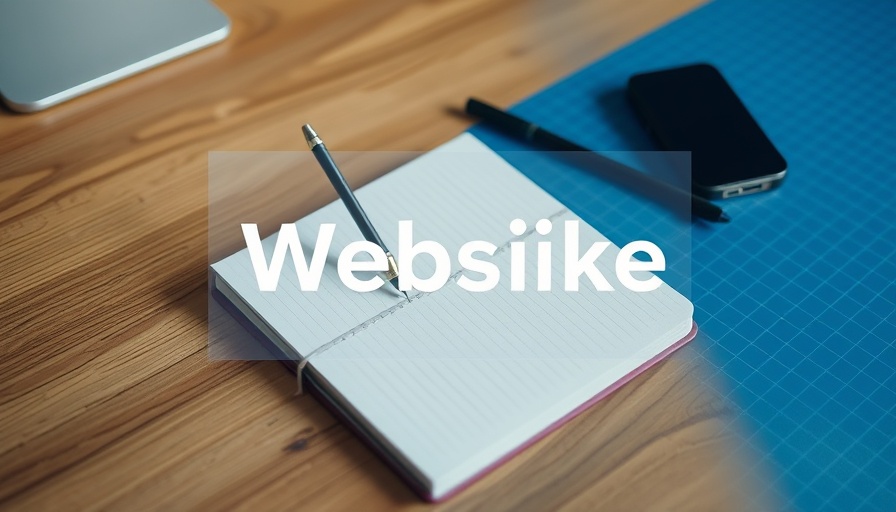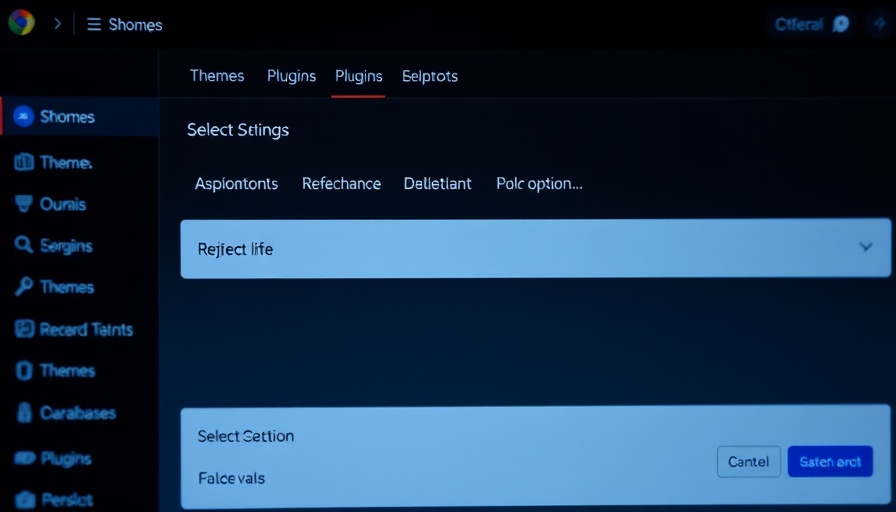
Why Every Website Needs a Favicon
When navigating the web, those tiny icons next to website titles can make all the difference. These favicons—the small graphics displayed in browser tabs—are often undervalued, yet they serve a vital role in enhancing user experience and brand visibility. An effective favicon isn’t just a decorative element; it’s part of your website's identity. A well-designed favicon can elevate the perception of your site, making it appear polished and professional, which is especially crucial in competitive online spaces.
Enhancing Brand Recognition and Credibility
Favicons play a significant role in establishing brand recognition. When users open multiple tabs, a memorable favicon helps them identify your website swiftly among many options. It reinforces your brand image, particularly if your favicon mirrors your logo or a key brand element. Moreover, uniformity across devices—whether on a mobile browser or a desktop—ensures users can find your site easily, promoting a consistent brand identity.
Furthermore, a customized favicon enhances your website's credibility. Generic icons can give an impression of a poorly maintained site, whereas a distinct favicon signals a professional approach. It assures visitors that your site is reputable, potentially influencing their interaction and trust.
Favicons and SEO: Indirect but Impactful
While favicons do not directly affect SEO rankings, they hold relevance in attracting organic traffic. Search algorithms recognize your website, identifying it through the favicon file. A distinctive favicon makes your site instantly recognizable in search results, contributing to a higher click-through rate (CTR). Users tend to remember and click on familiar icons over generic ones, reinforcing why a custom favicon is not merely an aesthetic choice but a strategic one.
Step-by-Step Guide: Designing Your Favicon
Ready to create your favicon? Here’s a simple process breaking down what you need:
- Design Your Favicon: Start with the basics. Your favicon should ideally be a simplified version of your logo, ensuring brand consistency. Use design platforms like Canva or Photoshop for creation or enlist a graphic designer if needed.
- Optimal Size and Format: After designing, the right size matters. An effective favicon can often be sized at 512×512 pixels for clarity across devices. Export the image in standard formats such as PNG for optimal support.
- Favicon Generators: If time is short or you're lacking design skills, several online favicon generators can transform your logo into a favicon. Tools like RealFaviconGenerator allow you to enter your logo file and get back a favicon ready for deployment.
Actionable Insights for African Website Owners
As Africa embraces the digital era, having a strong online presence is essential for businesses and organizations alike. Incorporating a favicon is just one step towards achieving a professional look for your website. As AI technology continues to evolve within the continent, presenting a credible and recognizable brand can distinguish you in a growing market.
In conclusion, don’t underestimate the potential impact of a favicon on your web presence. As you plan your website enhancements, consider investing time into creating a professional favicon that resonates with your audience and fortifies your brand identity. Remember, in today's digital landscape, every detail counts, making it crucial to present your website in the best possible light. It's time to create a favicon that works for you!
 Add Row
Add Row  Add
Add 




 Add Row
Add Row  Add
Add 

Write A Comment